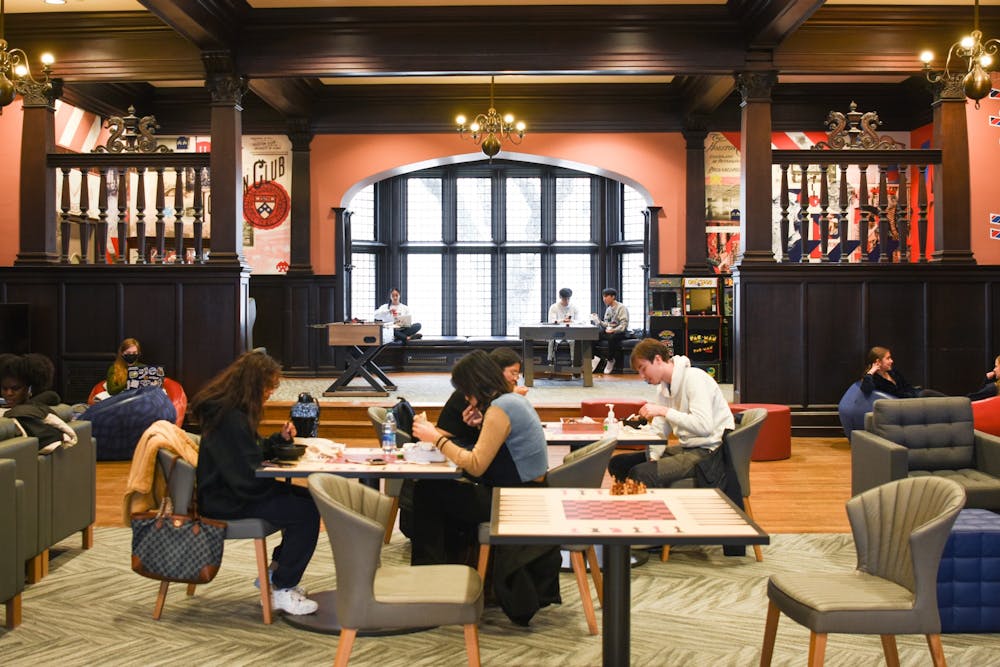As first-year students nestle into campus for their first few weeks of classes, they optimistically experience the most normal semester at the University since the outbreak of the COVID-19 pandemic in 2020. These students are excited, and rightfully so; there is much to look forward to and notice in the wake of the “post” COVID-19 University happenings.
The application and audition process for extracurricular organizations has begun to revert back to prior COVID-19 formats — crucial for pre-professional learning and experience. A capella, musical, and dance groups held their in-person auditions Sept. 4 and Sept. 5; the halls of Williams rang loudly while students presented their chosen song, dance routine, or skit. Students eagerly auditioned for groups that caught their eye at the first in-person Student Performing Arts Night in two years.
Organizations such as the West Philadelphia Tutoring Project and American Red Cross Club have initiated plans for in-person revivals after lacking a presence the last two years — significant as both service activities were devastatingly impacted by COVID-19.
On a more general note, community and relationship building is becoming much more accessible. Behind the Zoom screen, students are unable to form strong and authentic relationships that can be achieved in-person with intimate expression. And though an important tool in minimizing the spread of the disease, behind the mask, students are unable to connect as easily on a human and emotional level as they are without them.
Additionally, research has found increased distress across multiple mental health domains underscoring concerns regarding the emotional toll of the pandemic, which inherently impacts college students’ wellbeing and willpower. Hopefully, as the year progresses we can heal together and lower our shells with care, instead of hiding behind the four walls that we confined ourselves to in quarantine.
However, all this is not to say that the pandemic is over. Though vaccines have assisted in minimizing symptoms and preventing hospital overcrowding, COVID-19 is still very real and easily transmissible — and Penn is not doing enough to address this. The University currently offers testing five days a week at one location: 3734 Spruce St. This information is not heavily advertised. And as a university, testing should be offered all seven days of the week; the pandemic does not pause over the weekend when, if anything, there is greater risk of exposure through social events.
Our nation remains in a declared public health crisis, and consequently, Penn is obligated to take a proactive approach.
It should be to no one's surprise that Biden’s claim in an interview on “60 Minutes” that “the pandemic is over,” sparked national outrage, most notably for those who bear the brunt of the pandemic: immunocompromised individuals and marginalized communities with less resources.
Thus, it is imperative that students recognize that Penn is not a bubble. Rather, it exists in the middle of a widely-populated city filled with residents containing varying degrees of access when it comes to vaccinations and healthcare. The University must remain vigilant and increase testing to protect both our own and surrounding communities.
Penn must take a preventive step by making testing widely available and encouraged, with a goal of controlling the spread prior to potential surges, while maintaining community engagement in a prudent environment.
To curtail another wave of cases as the winter months approach us, Penn can turn for guidance to a particular California college and its surrounding town, UC Davis, a leader in maintaining university and local safety in the pandemic. Throughout last year’s winter surge, 7-day positivity rates in California inflated to a peak of approximately 22%, whereas comparatively, UC Davis had not surpassed a mere 1%. This minimal rate was achieved particularly through pre-symptomatic random sample testing, sparing those most susceptible to COVID-19 from exposure through dramatic reductions in transmission rates due to precautionary protocol.
Amy George, a teacher in the surrounding area of UC Davis noted, “It made me feel a lot safer. It really allowed me to go into the school year and deal with the school year in a workable way.” Our professors also warrant such a sense of security without apprehensions regarding insufficient testing that may impede their work capacity.
University of Illinois Urbana-Champaign, Boston College, and Georgetown also experienced low rates of transmission with expanded testing, especially as PCR testing has proven greater accuracy than antigen testing. In 2021, Penn Cares effectively provided an in-person semester through the use of comprehensive testing. Despite progress in the pandemic, Penn should continue to utilize testing measures to forestall prospective outbreak.
Ultimately, there is much to anticipate as the energy on campus revives and reverberates throughout Locust Walk. But the persisting risks of COVID-19 demand testing sites and attention. Much like UC Davis, Penn can also set a reliable example. The health of our peers and surrounding communities depend on it.
RIANE LUMER is a College junior studying political science and journalistic writing from Huntingdon Valley, Pa. Her email address is rlumer@sas.upenn.edu.









